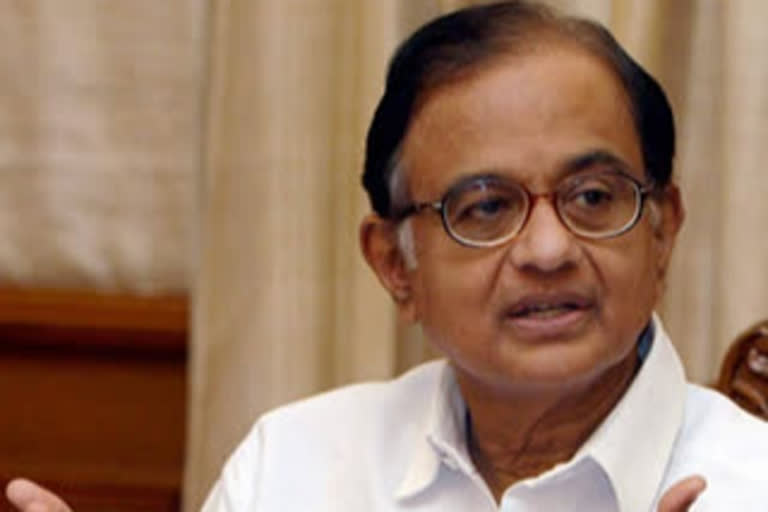New Delhi: Just a day after, the central government announced the third phase of the vaccination drive, Congress alleged that the move will lead to unhealthy bidding and profiteering and even called it a "regressive and inequitable" decision.
The central government has allowed the state governments and private hospitals to directly procure doses from the manufacturers,
On Monday, the central government announced that every person above the age of 18 years will be eligible to be vaccinated against COVID-19 from May 1. It also "liberalized" the vaccination drive as the manufacturers will now be free to supply 50 percent doses to state governments and in the open market.
Addressing a press conference, former Finance Minister and senior Congress leader, P Chidambaram welcomed "the positive changes made to the policy." However, the veteran Congress leader opined that the modified vaccine policy is regressive and inequitable.
"We are constrained to point out that the devil is in the details. The details show that the modified vaccine policy is, in crucial respects, regressive and inequitable," Chidambaram said.
"States with limited resources will be at a considerable disadvantage. States that are already weighed down by shrinking GST revenues, lower tax devolution, reduced grants-in-aid and increased borrowing would have to bear this additional burden," he said.
Chidambaram also explained the concerns of the Opposition regarding the bidding for the sales of the 50 percent of vaccine reserve which the companies are entitled to directly sell to the states.
"We are not against any manufacturer making a reasonable profit. But 50% is preempted by the central government, while 50% is available for the state governments and private hospitals. Obviously, they will bid. So, what about the states who will lose out the bidding? If 3-4 states emerge as the highest bidders, then how will the manufacturer allocate the quantities among three states? What is the formula? It will only lead to unhealthy bidding and profiteering."
Chidambaram also sharpened that attack on the government by suggesting that it has 'abdicated' responsibility towards the poor by excluding them from the central government’s vaccination programme.
Also Read: Bharat Biotech scales up Covaxin production to 70 crore doses annually
"Under the modified vaccine policy the Union government is running away from taking responsibility, overburdens the states, encourages vaccine manufacturers to profiteer, and will worsen the inequality between states as well between poor and rich Indians. Nowhere in the world has any government left its vaccination programme to be determined by the vagaries of market forces, and for good reason."
Meanwhile, the Congress also expressed concerns regarding the utilization of the relief fund, PM-CARES, to which the Prime Minister himself is the ex-officio chairman.
"Nobody knows where the thousands of crores of rupees collected under PM-CARES are being used," he said.
Former Union Minister and Senior Congress Leader, Jairam Ramesh, asserted, "...the new vaccination policy will put more financial burden on the already stretched state governments. Whatever money has been collected in PM-CARES should be shared with the states and totally infructuous projects like Central Vista should be postponed to such a time that at least the first round of universal vaccination is completed."
He further alleged, "This is a government which beliefs in 'One Nation, One Election, 'One Nation, One Tax', but it doesn't believe in 'One Nation, One Price'. They are going to have multiple prices."
Also Read: Rahul Gandhi slams GoI's vaccine liberalization strategy
Chidambaram also stated, "In a country where the median age is 28 years, to leave those who are below the age of 45 years out of a public-funded programme is, to say the least, callous. The migrant workers who live and work in other states and are the lifeblood of the economy of our cities will be the worst affected by this directive."
Congress also alleged that the modified vaccine policy does not provide funds for capital investment to the vaccine manufacturers to ramp up production and it does not invoke the provisions in the law for compulsory licensing to allow other domestic vaccine manufacturers to produce the approved vaccines and augment total supply.
On another point, the Opposition party questioned that while the modified policy allows for the import of foreign-made approved vaccines, why there is no clarity whether any foreign manufacturer has agreed to export its vaccine and, if so, whether adequate quantities have been promised to be supplied on an agreed schedule.
Also Read: PM to hold meeting with vaccine manufacturers today




